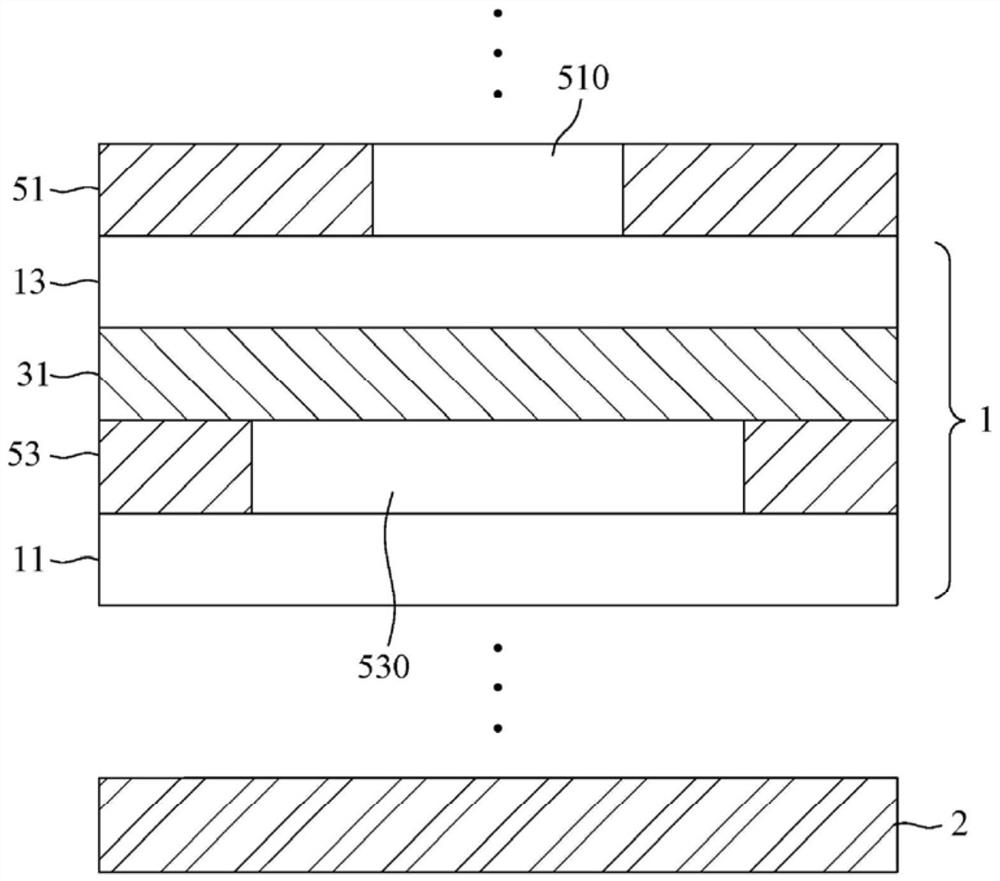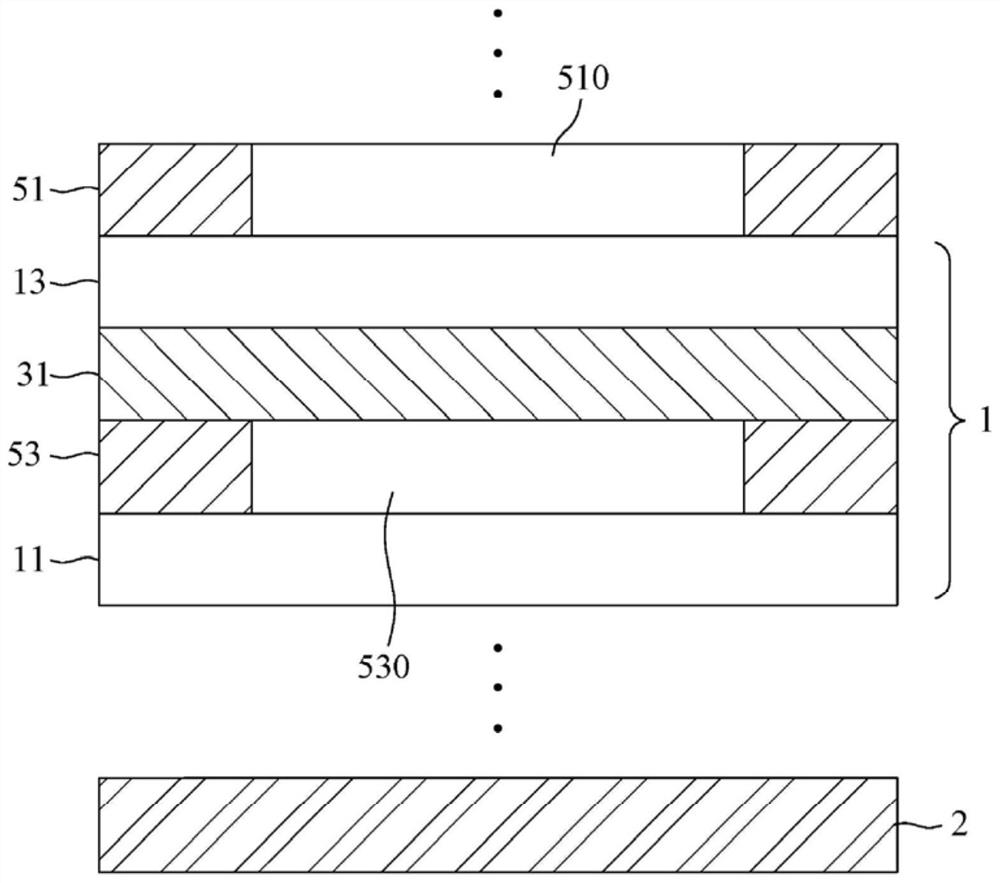Vertical Resonant Cavity Surface Emitting Laser Diode (VCSEL) with Multiple Current Confinement Layers
A technology that emits laser light and resonant cavity. It is used in lasers, laser parts, semiconductor lasers, etc. It can solve problems such as large power loss and limited detection distance, and achieve improved sensing distance, low power consumption, and power conversion efficiency. Enhanced effect
- Summary
- Abstract
- Description
- Claims
- Application Information
AI Technical Summary
Problems solved by technology
Method used
Image
Examples
Embodiment 1
[0078] exist Figure 1a , Figure 1b and Figure 1c In terms of the main structure, the first current confinement layer 51 with the first through holes 510 is disposed on the active region 1, and the tunnel junction layer 31 and the second current confinement layer 53 with the second through holes 530 are disposed Between the first active layer 11 and the second active layer 13 in the active region 1 , the tunnel junction layer is interposed between the first current confinement layer 51 and the second current confinement layer 53 .
[0079] according to Figure 1a structure, since the tunnel junction layer 31 , the second current confinement layer 53 and the first active layer 11 are sequentially under the second active layer 13 , in this configuration, if the current flows from the first through hole 510 and Flow into the first active layer 11 through the second through hole 530, the epitaxial layer above the first current confinement layer 51 is mainly composed of a P-type...
Embodiment 2
[0091] like Figure 3a As shown, the VCSEL includes three current confinement layers 51, 53, 55 and two active layers 11, 13, wherein the via areas of the three current confinement layers 51, 53, 55 are not equal to each other, the first via hole, the second via hole and the The size of the through hole area of the third through hole is respectively small, medium and large. The structure shown in FIG. 3a is only an example, and the relationship between the through hole areas of the first through hole, the second through hole and the third through hole It can be large, medium, small or small, medium, medium or various other suitable combinations. Preferably, the through hole area ratio between the first through hole and the second through hole, between the second through hole and the third through hole, or between the third through hole and the first through hole is between 0.2-5, 0.3-3.3, 0.5-2, 0.54-1.85 or 0.6-1.6, wherein the specific through-hole area ratio is 0.5, 0.6,...
Embodiment 3
[0094] In the case where the VCSEL includes three current confinement layers or even more current confinement layers, if the area of some vias or vias is large enough, that is, the sum of the resistance values of the current confinement layers is not too large, some vias Or in addition to the areas of the through holes that may not be equal to each other, some or both or each of the through holes may also be approximately equal or close to each other.
[0095] by Figure 3b For example, if the minimum through hole area among the first through hole, the second through hole and the third through hole is greater than 30 μm 2 (40μm 2 / 50μm 2 ), the three can even be equal to each other; in principle, as long as the sum of the resistance values of the current confinement layers does not significantly affect the power conversion efficiency of the VCSEL, one (some) of the current confinement layers can also be tolerated. The via area is less than 30µm 2 , 40μm 2 or 50μm 2...
PUM
 Login to View More
Login to View More Abstract
Description
Claims
Application Information
 Login to View More
Login to View More - R&D
- Intellectual Property
- Life Sciences
- Materials
- Tech Scout
- Unparalleled Data Quality
- Higher Quality Content
- 60% Fewer Hallucinations
Browse by: Latest US Patents, China's latest patents, Technical Efficacy Thesaurus, Application Domain, Technology Topic, Popular Technical Reports.
© 2025 PatSnap. All rights reserved.Legal|Privacy policy|Modern Slavery Act Transparency Statement|Sitemap|About US| Contact US: help@patsnap.com



